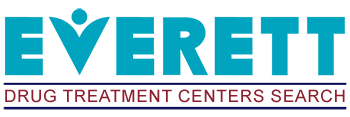Medical Detox in Everett, MA
Effective rehabilitation requires multiple levels of treatment, from the early days of detox through to the later stages of rehab and aftercare. Medical detox describes the experience and process of drug withdrawal in a medical setting, including the administration of medications to support stability and recovery. Medical detox is often initiated for drugs that produce a physical withdrawal syndrome, including alcohol, heroin, prescription opiates, and prescription sedatives. While medical intervention is largely ineffective when treating cocaine and other stimulants, it can be administered as a way to enforce abstinence and stabilize patients prior to rehab.
Drug and Alcohol Withdrawal in Everett
Medical detox programs are designed to treat the physical and psychological withdrawal symptoms experienced by drug dependent people. Withdrawal symptoms take many forms, with some psychoactive substances known to produce distinct physical-somatic symptoms upon cessation of use and others linked to psychological symptoms. Drugs that produce physical symptoms include alcohol, heroin, morphine, codeine, oxycodone, Valium, Klonopin, and numerous other central nervous system (CNS) depressants. Drugs that produce emotional and motivational symptoms include cocaine, speed, methamphetamine, marijuana, and prescription stimulants such as Ritalin and Concerta. Medications are often needed to help reduce the severity of these symptoms and help stabilize patients prior to rehabilitation.
Medical Detox Steps
The United States Department of Health and Human Services recognize three separate stages in the medical detox process, each of which plays an important role. A detailed evaluation phase is needed at the outset of treatment, including physical tests for currently circulating substances and psychological tests for secondary mental health disorders and behavioral addictions. Once a thorough analysis has been carried out, the next stage of treatment can begin. Medication typically begins during the second stage of treatment, with various drugs administered depending on the substance and extent of addiction. While it is possible to stabilize patients without medical intervention, this is only advised in certain cases when physical withdrawal symptoms are not present. The third and final stage of medical detox involves a detailed consultation process, with patients educated about treatment options before being enrolled in an appropriate rehab program.
Alcohol Withdrawal and Detox
Alcohol dependence typically requires medical detox, including the administration of benzodiazepine drugs and other medications. The alcohol withdrawal syndrome can be severe and dangerous in some cases, with medications used to help reduce the severity of seizures, delirium tremens, and other high-risk withdrawal symptoms.
Opiate Withdrawal and Detox
Opiates include the illegal drug heroin and the prescription medications Oxycontin, Vicodin and many others. Opiate dependence requires medical detox in most situations, including the administration of opiate substitutes such as methadone or buprenorphine. While it is possible to stabilize opiate addicts through natural or “cold turkey” detox regimes, this process can be dangerous and is rarely advised. If you need to access medical detox services for a drug or alcohol problem, Everett Drug Treatment Centers can help today. Just give our recovery advocates a call at (617) 553-9495.
